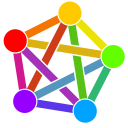Suche
Beiträge, die mit GithubIsMicrosoft getaggt sind
I feel with you. Then maybe somebody needs to remind the @w3c that the web is "for everyone"?
…not just people that happen to create accounts for Microsoft's walled garden?
#GithubIsMicrosoft #W3C #privacy #OpenStandards

Our mission
Learn who W3C is, our values and the principles upon which we conduct our mission to led the Web to its full potential.W3C
So the Social Web Foundation invites everybody to come over to Microsoft. 🙄 I see room for improvement.
"So, people interested in ActivityPub, standardization, and group dynamics in general are invited to review the documents and submit GitHub issues or comment on existing issues."
socialwebfoundation.org/2024/1…
#SocialWebFoundation #FOSS #FreeSoftware #GithubIsMicrosoft #Codeberg


